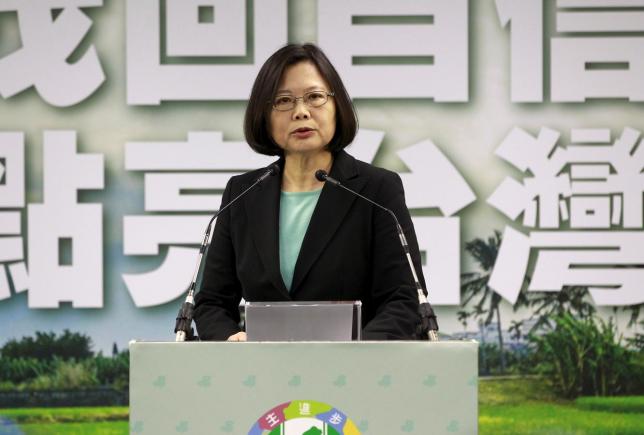Taiwan Elects First Female President
By Lyndsey Cole
Staff Writer
Taiwan made history when Tsai Ing-wen was elected as its first female president on January 16. The 2016 election campaign focused largely on economic issues due to continued economic stagnation within the country, as well as on the lingering question of relations with China.
As a member of the Democratic Progressive Party (DPP), Tsai is doubtful of closer ties with China. According to the New York Times, she spoke to a large crowd of Taiwanese citizens on the night before the election, saying, “I want to emphasize that both sides of the strait have a responsibility to find mutually acceptable means of interaction that are based on dignity and reciprocity. We must ensure that no accidents or provocations take place.”
Taiwan has longstanding tension with neighboring China regarding their independence. The People’s Republic of China believes that the island is a part of Chinese territory, and as such should be under the rule of the government in Beijing. In turn, Taiwanese voters have fought against establishing deeper ties with the PRC.
Tsai’s opponent from the Kuomintang party, Eric Chu, believes that the appropriate way to reinvigorate the failing economy was to establish these closer economic ties, pushing voters to favor the DPP.
Analysts expect the results of the election to have a great impact on the country’s relations with China. J. Michael Cole, a fellow at the University of Nottingham’s China Policy Institute, told the Washington Post, “If they refuse to meet Tsai Ing-wen halfway, it is as clear a signal as you can imagine that they don’t understand what’s going on here and can’t adapt their policies to be acceptable to the Taiwanese people.”
It is feared that the election of Tsai may inspire tension in the region that could spread to allies such as the United States. Richard C. Bush III, director of the Center for East Asia Policy Studies at the Brookings Institution, stated, “The size of the DPP victory should induce Beijing to reconsider the hard-line stance that it has taken during the run-up to the election. If Beijing can adjust its strategy and Tsai is willing to meet Chinese President Xi Jinping half way, a mutual accommodation between them is not impossible. But it will not be easy.”
Some argue that this is a very optimistic view because China’s policies on Taiwan are far-reaching, spreading even to popular culture. Recent controversy surrounds Taiwanese-born singer Chou Tzu-yu’s decision to hold a Taiwanese flag in a music video as a show of pride. According to ABC News, she was then forced by her management to record an apology “admitting that she was Chinese and that there is only one China.”
Tsai addressed the controversy in her acceptance speech saying, “It will serve as a constant reminder to me of the importance of our country’s strength and unity.”
The United States remains supportive of Taiwan, sending two senior officials from Washington to speak with Taiwanese political leaders. The U.S. also plans to send ambassadors to Beijing to discuss China’s relations with Taiwan in the wake of the election.




